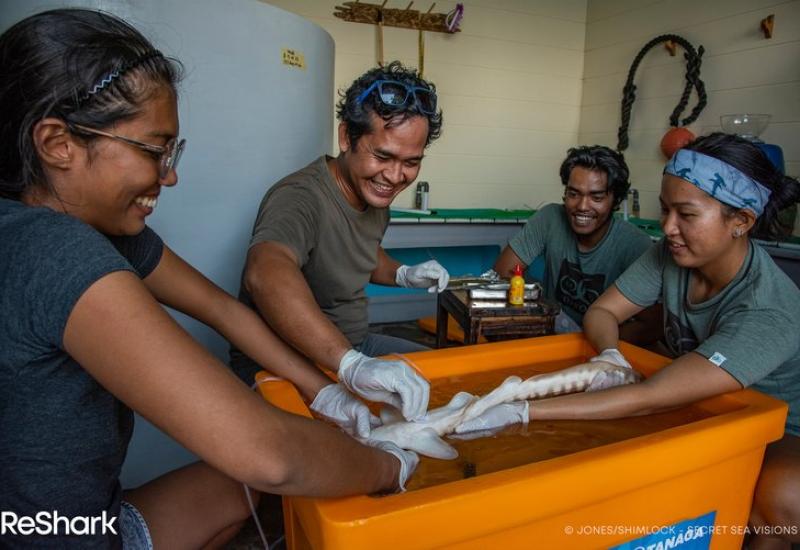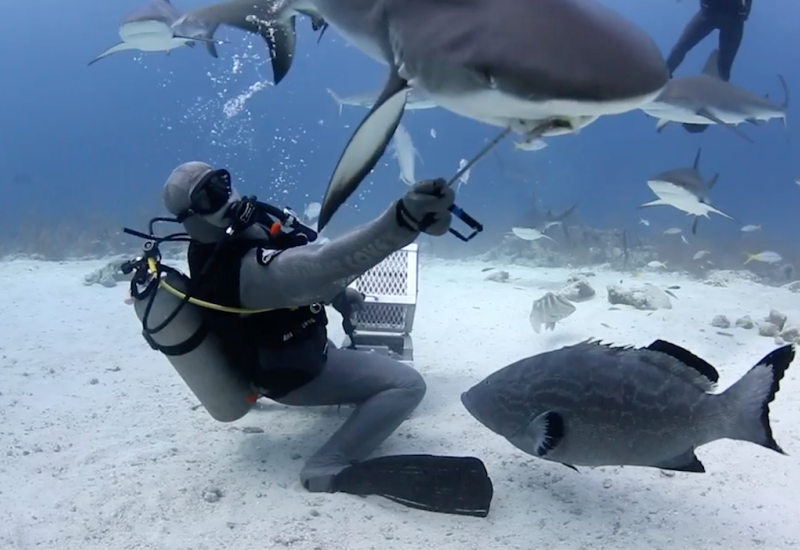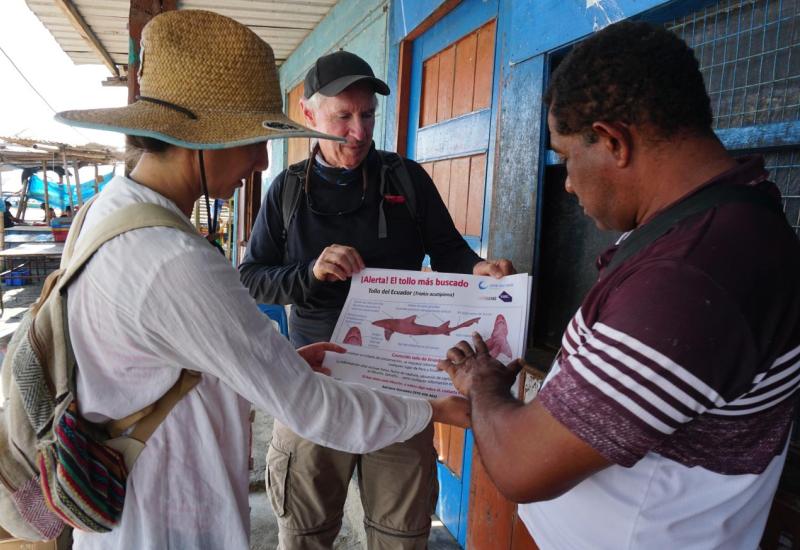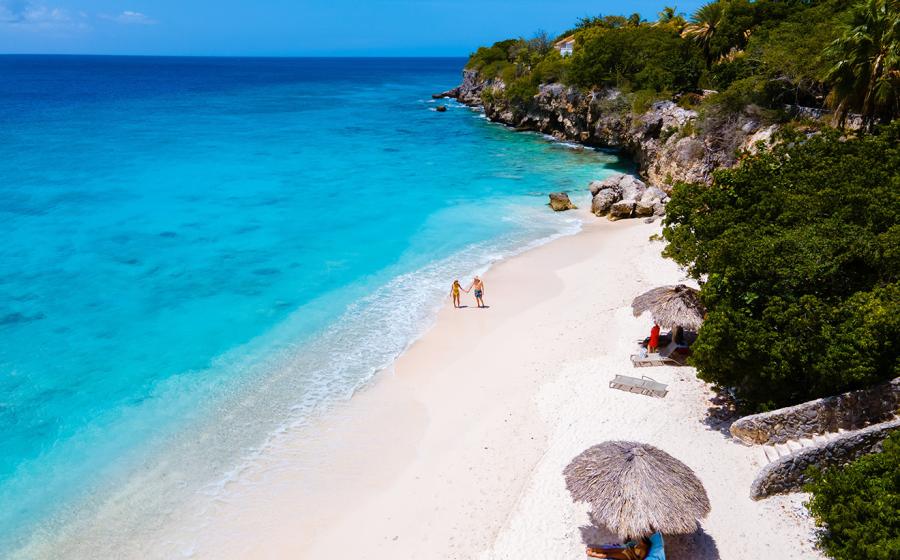Can Wildlife Tourism Solve the Shark Conservation Crisis?
“Sharks are worth more alive than dead” has become a rallying cry among shark lovers in the scuba diving community. This claim is based on the idea that a living shark can generate more income for a coastal community than a shark fishery by attracting tourists who want to swim with sharks. Therefore, the argument goes, we should ban all shark fishing. Then all the sharks in the world will be saved without any negative economic consequences—former fishermen can just work in wildlife tourism! Regular readers of this column, I’m sure, will be shocked to learn that reality is actually more complicated than that.
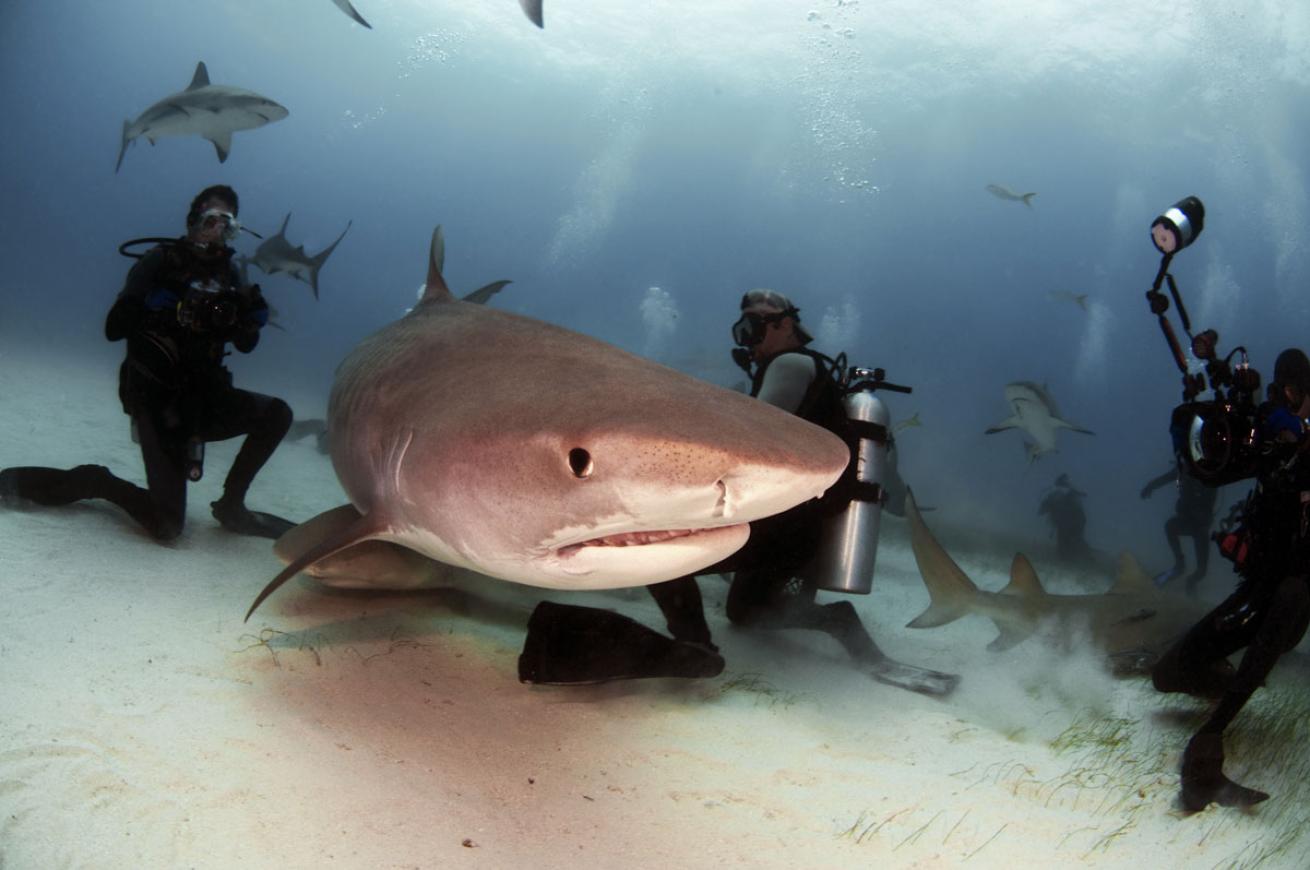
Shutterstock.comDivers photograph sharks underwater in the Bahamas.
First of all, yes, in some places the total economic value of shark wildlife tourism absolutely exceeds the total economic value of shark fisheries, and this argument has been used with positive outcomes for local and even national-level shark protections, notably in the Maldives (where this argument first came from) and in the Bahamas, the global epicenter for shark wildlife tourism.
However, while the “sharks are worth more alive than dead” argument is true in some places, it isn’t true overall—the total global economic value of shark wildlife tourism is less than the total global economic value of shark fisheries. It also isn’t really true anywhere that doesn’t already have tourism infrastructure in place (consider also that building lots of new hotels and restaurants isn’t exactly free of environmental impact), or anywhere that does have a well-developed shark fishery already. In other words, this argument isn’t going to work everywhere—or indeed in many of the places where shark conservation is most desperately needed.
Secondly, it’s important to note who gains from industries moving from fishing toward wildlife tourism. In many cases, the fishermen who lose income after shark fishing ceases are not the same people who profit as a result of new wildlife tourism businesses opening up. For instance, money spent diving from foreign-owned liveaboards rarely if ever benefits the local economy of a dive destination. This can have unintended consequences. In one case documented in Indonesia, former fishermen even turned to human trafficking and drug and weapons smuggling when no alternative livelihood was apparent.
And not all shark species can possibly benefit from wildlife tourism. Wildlife tourism primarily works for reliably seen species that are easily accessible from a wildlife tourism operator’s home base. Many of the most endangered species of sharks live in the deep sea or the open ocean, and will not ever be seen by scuba divers. Others have populations so low that wildlife tourism won’t reliably see them, even if divers actually do go anywhere near their habitat. A 2011 analysis by my former lab mate and former Ph.D. adviser found that most of the shark species that are most regularly seen by wildlife tourism operators are species that aren’t the most threatened species. Indeed, many are categorized as “Least Concern” by the IUCN Red List of Threatened Species, and a 2017 project I was involved with found that many of the most threatened species are rarely seen by scuba divers. I’ll pause here to address a common refrain I hear when I give public talks about this point: “We can ban all shark fishing because some shark species are valuable for wildlife tourism, and that’ll protect the shark species that aren’t seen by scuba divers.” But shutting down a large-scale profitable fishery targeting some species because separate people somewhere else want healthy populations of other species is an extremely uncommon approach that’s not just going to convince decision-makers most of the time. The goal of protecting some of the ocean and allowing sustainable fishing in the rest, documented in my column about MPAs, would allow both groups to get what they want. Banning all shark fishing everywhere because the wildlife tourism industry benefits from unfished shark populations in a few places is not a balanced, science-based approach.
Finally, there’s an important philosophical objection to the “sharks are worth more alive than dead” argument. By making this claim, we are ceding the idea that how economically valuable something is should determine whether or not it is conserved. There are plenty of threatened species for which it would be more financially valuable for us to exterminate them than to keep them alive, and you’ve just sold them out! Also, what’s more financially valuable now can change in the future. The extremely lucrative market for manta ray gill rakers, for example, didn’t exist until my lifetime. Additionally, if a community depends more on beach tourism than scuba tourism, there may well be economic benefits to not having shark populations nearby, because shark bites lead to declines in people visiting the beach. When making an argument for conservation, one must be careful not to undermine other arguments for conservation in other places or in the near future!
So are sharks indeed “worth more alive than dead?” Some populations of some species in some places are, and scuba divers can feel great about their role in helping to protect some wildlife and wild places! However, conservation is complicated, and oversimplifying and overgeneralizing helps no one and nothing. Sustainable shark fisheries can and do exist, and moving toward sustainable shark fishing is a much, much more popular goal than banning all shark fishing everywhere among scientific experts.
Scuba diving with sharks can absolutely play a role in protecting some local populations of some species, but banning all shark fishing everywhere in the name of wildlife tourism cannot and will not be the only solution. We must allow and promote sustainable fisheries management in much of the world, objecting to unsustainable overfishing practices that harm threatened populations rather than objecting to all fishing anywhere. Conservation is complicated, and we ignore this at our peril.
About David Shiffman
Dr. David Shiffman is a marine conservation biologist specializing in the ecology and conservation of sharks. An award-winning public science educator, David has spoken to thousands of people around the world about marine biology and conservation, and has bylines with the Washington Post, Scientific American, New Scientist, Gizmodo and more. Follow him on Twitter, Facebook and Instagram, where he’s always happy to answer any questions about sharks. Please direct any questions or hate mail to [email protected].

Josh LibermanDr. David Shiffman
About Science Stop with Dr. David Shiffman
Before you surface from a deep scuba dive, you make a safety stop. Before you take a deep dive into the complicated world of ocean conservation, I encourage you to make a science stop by reading this column. The global environmental challenges we face can seem overwhelming, and concerned citizens, especially people like scuba divers who love spending time in the ocean, want to help do their part to fix these problems. However, with lots of conflicting, misleading or just plain wrong information out there about environmental problems and how you can help solve them, it can be hard to know how to help. In some cases, well-intentioned but misinformed activists not only fail to help solve a problem, but can actually make the problem worse, or harder to solve! Put simply, if we’re going to fix the massive problems facing the ocean, the details matter, and those details can be confusing! In this monthly column, my goal is to teach you the true scientific facts behind some of the most pressing threats facing the ocean and the solutions experts believe will help solve them. I will also try to dispel common misconceptions about these threats and their solutions.

